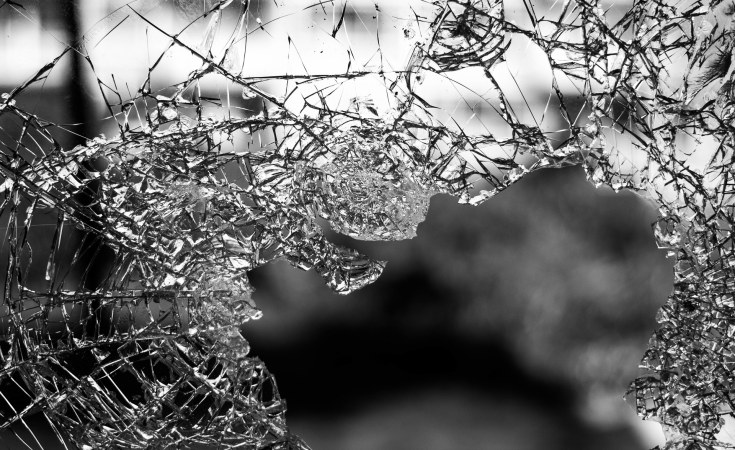The NHRC expressed hope that the new administration of President Bola Tinubu would approve the national policy on protecting civilians during conflict amid worsening security situation in the country.
The National Human Rights Commission (NHRC) on Tuesday submitted a draft national policy on protecting civilians during conflict to the federal government.
The Executive Secretary of NHRC, Tony Ojukwu, said this at the opening of a workshop and photo exhibition on protection of civilians and human rights in Nigeria
The commission organised the event in collaboration with the Centre for Civilians in Conflict (CIVIC) which is celebrating its 20 years since inception. The event was supported by the European union (EU).
According to Mr Ojukwu, the workshop comes on the heels of recent upsurge in violence in the North-east and the North-central parts of the country,
He said the upsurge added to the existing violence in the South-east and the North-west regions.
"Sadly, according to UNDP, over 2 million people have been displaced and 300,000 killed during the over a decade Boko Haram conflict in the North-east.
"Section 14 of the Constitution of the Federal Republic of Nigeria (as amended) places responsibility to protect on the government and its institutions.
"This provides that the security and welfare of the people shall be the responsibility and ultimate goal of every government," he said.
Government reminded of its duty
Mr Ojukwu, who decried the "upsurge in violence in the North-east and North-central parts of the country," reminded the government of its statutory responsibility to protect Nigerians and their livelihoods.
"Protection of civilians in conflict from violence and human rights violations of all kinds remains a sacred duty of not only the government but also non-state actors."
He noted that the policy submitted to the government was aimed at addressing issues concerning "protection, treatment and rehabilitation of civilians as well as remedial and accountability measures for perpetrators of violence and human rights violations."
Nigeria has grappled with rights violations of civilians in conflict zones, especially in the North-east blighted by Boko Haram insurgency.
Recently, the Human Rights Watch detailed erroneous airstrikes carried out by the Nigerian Air Force that have killed over 300 civilians in the last six years.
Military authorities often claim the airstrikes were targeted at bandits and Boko Haram terrorists.
In July 2017, a military airstrike on Ran IDP camp in Borno State, North-east Nigeria, killed scores of people.
The Defence Headquarters had blamed "lack of appropriate marking" for the air strike by the Nigerian Air Force on Ran.
In February, the Nigerian Air Force bombed a Benue-Nasarawa border community, killing some herders.
According to the UNDP, over two million people have been displaced and 300,000 killed during the over a decade Boko Haram conflict in the North-east.
The draft policy, according to Mr Ojukwu, "is applicable to the Nigerian government, including, but not limited to the armed forces, security agencies, law enforcement agencies, intelligence services".
"It also includes any other group conducting operations in conjunction with, on behalf of, or with the support of the government and (or) sub-national government during all armed conflicts, security operations, internal security operations and all military operations involving the use of force ,to all civilians and persons harmed by actors listed above.
"Civilians who have suffered harm perpetrated by non-state actors which shall be held accountable by the government through the justice system, and in accordance with the provisions of this policy," he added.
Mr Ojukwu expressed hope that the new administration of President Bola Tinubu would approve the policy to address the worsening security situation in the country.
He added that the NHRC was committed to playing a leading role in the implementation of this policy and to ensure that all stakeholders play their parts in the protection of civilians.
Photo-exhibition of victims of conflicts
In an emotional display of framed photographs of victims of conflicts in the North-east, a not-for-profit organisation, CIVIC, called for the protection of civilians in crisis areas.
The pictures captured the daily difficulties victims of conflicts (especially women and children) in Borno and other states in the North-east face in trying to eke a living.
Jude Ilo, interim executive director of CIVIC, said his organisation "envisions a world in which no civilian is harmed in conflict."
The country representative of CIVIC in Nigeria, Benson Olugbuo, said previous regimes promised to address insecurity in the North-east, "but too little of these promises have been translated into concrete actions."
Mr Olugbuo, however, expressed optimism that President Tinubu's appointment of new service chiefs "provides an opportunity for a reset" in "charting a new course for a safe and secure Nigeria."
"... a holistic planning towards ending these conflicts depends on a plan that centers around the protection and well-being of communities," Mr Olugbuo recommended.
In a goodwill message, the Solicitor-General of the Federation and Permanent Secretary, Federal Ministry of Justice, Beatrice Jeddy-Agba, decried the challenges of gender-based violence, abduction and recruitment of child soldiers faced by victims of conflicts.
Represented by Jamila Ade, Mrs Jeddy-Agba said a response unit to tackle sexual and gender based violence had been established at the Justice Ministry in Abuja.
"A solution room was created to promote access to justice for child survivors of sexual violence," she revealed.


